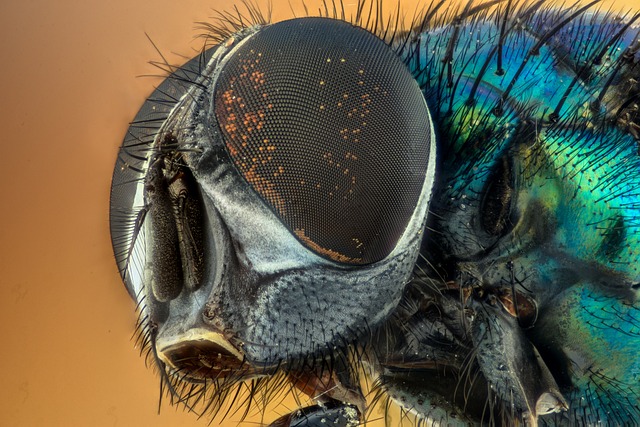The Surprising Digestion of Flies: Do They Really Throw Up When They Land?
Have you ever noticed a fly landing on your food and wondered what it’s been eating? Flies have a reputation for being dirty and carrying disease, but did you know that their digestion process is quite unique? In this blog post, we’ll explore the fascinating world of fly digestion and find out if they really do throw up when they land.
Flies belong to the order Diptera, which means “two wings.” They have one pair of wings for flying and a second pair of smaller wings called halteres, which help them maintain balance. Flies are also known for their ability to taste with their feet, which allows them to quickly identify a potential meal.

When a fly finds food, it uses its proboscis (a tube-like mouth) to suck up liquid or semi-liquid food. The food is then mixed with enzymes in the fly’s stomach, which breaks it down into smaller molecules that can be easily absorbed by the fly’s body.
Now, let’s talk about the question you’ve been wondering about: do flies throw up when they land?
The answer is yes, but not in the way you might think. Flies have a special mechanism in their stomach called a “crop,” which allows them to regurgitate some of the liquid from their food. This is not the same as throwing up, as the fly is not expelling undigested food. Instead, the crop allows the fly to selectively release some of the liquid from its food so it can more easily absorb the nutrients.
This process, called “pumping,” allows the fly to take in a lot of food quickly and efficiently, which is crucial for their survival. Flies have a short lifespan, so they need to make the most of their time and resources.
Animals Sleep Habits – Do flies sleep ?
Aside from this interesting fact about flies, here are some more fun facts about them:
- Flies can fly at a speed of up to 15 miles per hour.
- Flies have compound eyes, which are made up of thousands of individual lenses. This gives them a wide field of view and the ability to see in different directions at the same time.
- Flies have a lifespan of about 2-4 weeks.
- Flies can spread more than 100 different types of disease.
- Flies have a unique way of mating, where males will perform a “dance” to attract females.
Flies may have a bad reputation, but their unique digestion process is quite fascinating. The next time you see a fly landing on your food, remember that it’s not throwing up, it’s simply releasing some of the liquid from its food to make it easier to absorb the nutrients. And while it’s important to keep flies away from our food and our homes, it’s also important to appreciate the unique adaptations that have allowed them to thrive for millions of years.

